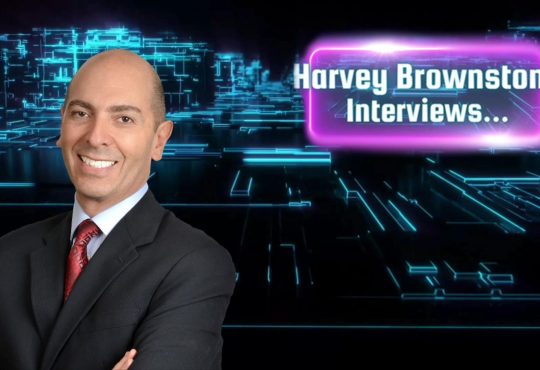John Oliver Rips Madison Cawthorn — and Free Next-Day Shipping
Though Madison Cawthorn wasn’t the focus of this week’s episode, John Oliver couldn’t resist spending a few minutes discussing the North Carolina representative, what with him being in the news for saying on a podcast that he’d been invited to cocaine-fueled orgies by other lawmakers, statements that very much annoyed his fellow Republicans. Oliver pointed out that it was pretty on-brand for Cawthorn considering his history as a “predatory, conspiratorial” attention whore. And best of all, it was a chance for Oliver to gleefully discuss a Cawthorn Instagram post at Adolf Hitler’s so-called Eagles Nest mountain hideaway, and Cawthorn’s caption about how the home of “the Führer” had been on his “bucket list for awhile” and that it “did not disappoint.”
But enough about Hitler and orgies — it’s time to talk trucks. There are about 3.5 million truck drivers in America, yet trucking companies have long claimed there’s a shortage of drivers that threatens to derail — OK, further derail — the supply chain. Except, the actual problem isn’t too few truckers, it’s too few truckers willing to put up with all the terrible bullshit truckers are forced to put up with.
Since trucking’s pop-culture heyday in the 1970s — Oliver rightly lauded the insane late-Seventies TV show BJ and the Bear, about a long-haul trucker and his chimpanzee companion, Bear — compensation for drivers has plummeted 50 percent in real terms. Why? For the same reason so, so many things about the U.S. are so, so bad today: 1980s deregulation. At least this particular deregulation monkey’s paw has a fun plot twist — it actually wasn’t Ronald Reagan who signed off on it, it was Jimmy Carter. He did it in July of 1980, and even a truck-riding chimp with a counterintuitive name could figure out Carter was doing it in a futile attempt to appeal to voters in the midst of his unsuccessful re-election campaign.
Oliver identified three big problems with the trucking industry. One, truckers don’t get paid for a time-consuming part of their jobs — waiting while their trucks are loaded and unloaded. Instead, they’re paid by the mile, which Oliver argued incentivizes dangerous driving to make up for the lost time. He then pointed out that 5,000 people are killed every year in accidents involving large trucks. Are those two things actually related, and if so, how much? Unfortunately, Oliver didn’t say.
The second is that truckers are labeled as independent contractors even when they work for only one company, meaning they receive no benefits and pay their own expenses. Oliver played a clip in which a trucker explained she had made $150,000 in a year, but due to all of her costs — her gas alone was $100,000 — the amount of money she took home was a lot closer to $20,000.
“I am no CPA, despite the face, glasses, and insatiable horniness for numbers that strongly implies otherwise,” Oliver said. “But that seems like a pretty shitty bottom line.”
And the third reason: lease-purchase agreements. In theory, drivers lease a truck from the company they work for — well, the company to whom they are independently contracted — until, eventually, they own the truck. In reality, one company executive estimated only 5 percent to 10 percent of drivers who entered into the agreements ever wound up owning. Some drivers in these predatory lease and work agreements have found themselves owing the company money at the end of a work week.
Oliver pointed out that the Departments of Labor and Transportation are planning to investigate the ways drivers get screwed by trucking companies. But trucking companies aren’t the only ones playing a roll in the misery being visited on some of the nation’s most crucial workers.
“We should probably recognize that we have all gotten used to the idea of free next-day shipping,” Oliver said. “But crucially, someone somewhere always pays the price.”







